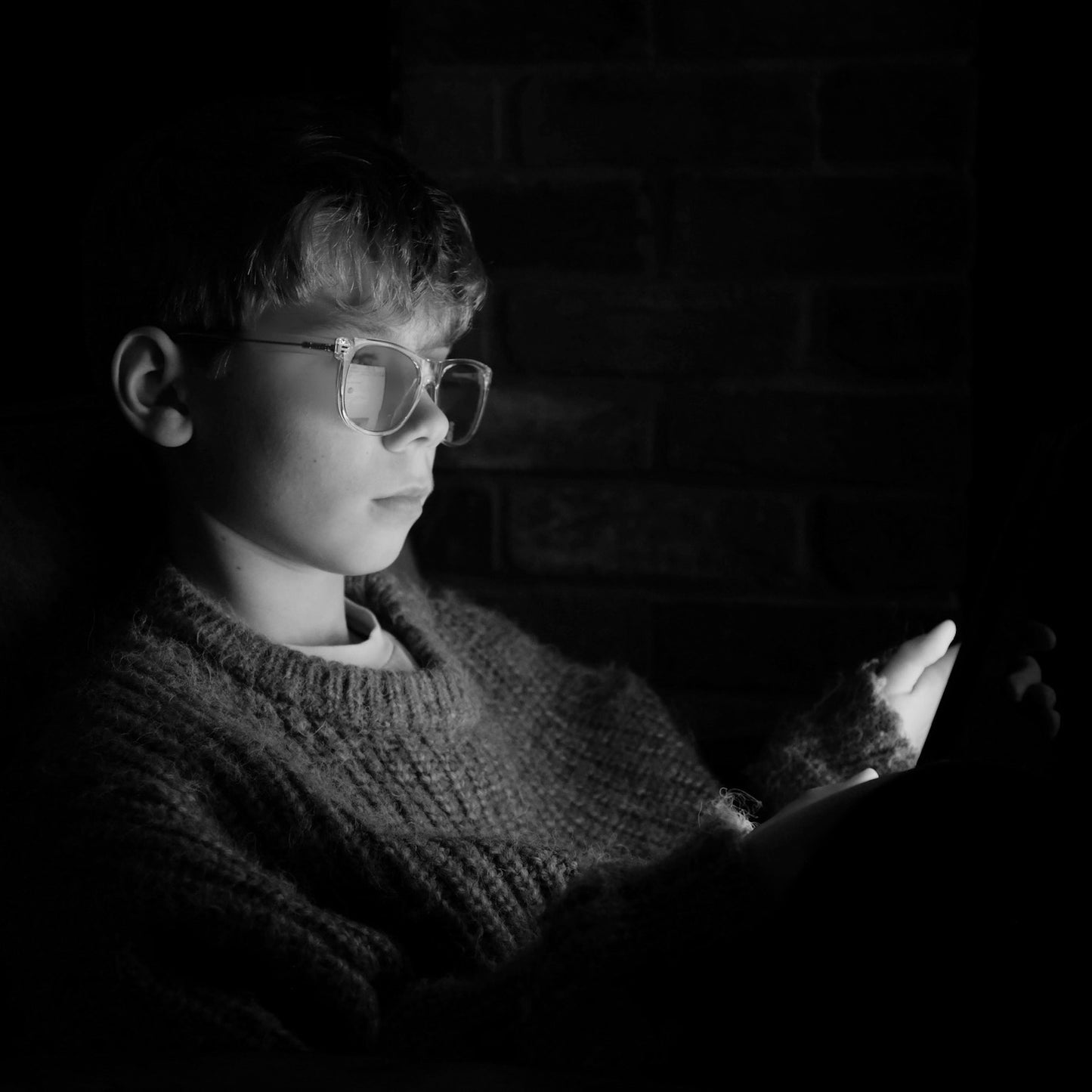
Winter in the UK can be tough—short days, long nights, and the endless glow of artificial lights can leave us feeling drained and out of sync. But for me, a simple change has made a huge difference: blue light glasses.
Our journey with blue light glasses started during ATTA's very first podcast with Daniel Ebbett, founder of Block Blue Light. He opened my eyes to how artificial light disrupts our circadian rhythms, impacts our sleep, and even affects our overall energy. Since then, blue light glasses have become a staple in our daily lives, especially during the dark winter months.
We took things even further in one of our ATTA online workshops, where we invited the amazing Jackie Jolie to share her expertise on “getting your light life right.” That workshop gave us a deeper understanding of how natural and artificial light influence everything from mood to metabolism. It’s been a game-changer for how we approach our health, productivity, and wellbeing during winter.
Here’s how blue light glasses fit into my family routine and help us thrive through winter.

Morning: Embracing Natural Light
The first light of the day is key to setting your circadian rhythm. When I can (sometimes the kids join me!), as soon as Daybreak arrives I step outside (facing East) to soak up that natural, red-rich light. Even a quick minute outdoors makes me feel more awake and energised for the day ahead. Note that even when the grey clouds are covering the sun there is still some red light rays to influence your rhythm.
For busy mornings indoors, I wear amber-tinted blue light glasses to filter out artificial light and keep things calm. These are perfect for household tasks or checking our phones without disrupting that early-morning restorative rhtym. Red light glasses in the morning just make me more sleepy.
If I'm driving before sunrise, I always switch to yellow-tinted glasses, which are brilliant for cutting the harsh glare of headlights and streetlights while keeping visibility clear.
Midday: Staying Energised Indoors
Working under artificial lights or staring at screens all day can take a toll, but blue light glasses make it manageable. In my home office (or kitchen table!), I wear yellow lenses to reduce eye strain and screen glare. Plus, both Tracy and I use tools like the Iris app (recommended by Jackie), which minimises blue light from our computer screens.
We also make an effort to take “light breaks” during the day, stepping outside for a minute or two to grab some natural daylight. It’s such a simple thing, but it really lifts our energy and focus.
If I'm home, i'll sometimes crack a window open or turn on a red light panel (if you’re lucky enough to have one) for an extra dose of warm, natural-feeling light. These small tweaks help make those long winter workdays so much better.
Evening: Preparing to Wind Down
When the sun sets (as early as 4:30 pm in the UK winter!), I switch to yellow-tinted glasses if we still need to be productive in the early evening. They’re great for managing the transition into nighttime without making us feel drowsy too soon.
Later, around 7 or 7:30 pm, The kids and I move to red-tinted glasses to help our bodies naturally relax and wind down (earlier for the kids maybe to wind them down for an earlier bedtime - check out the kids glasses). These are a lifesaver for calming our nervous systems after a busy day, especially if we’re watching TV or have bright lights on in the house. Tracy and I like to pair them with dim, warm lighting from Block blue light – The portable lamps are also great for the kids to wind down at bedtime.
I've found that this evening routine not only helps us fall asleep faster but also improves the quality of our sleep—something that makes a big difference during the darker months. So If your children struggle to wind down ar bedtime – block their blue light and give them some red glasses- it works a treat!
Key Takeaways
Wearing blue light glasses has been a game-changer. They help me feel more alert in the morning, avoid that afternoon slump, and relax properly at night. Paired with natural light exposure, red light therapy, and smart home lighting, they’ve transformed how we navigate the UK winter.
We’re so grateful to Daniel Ebbett for introducing us to blue light glasses during our first podcast. His insights, paired with what we learned from Jackie Jolie in our workshop, have completely reshaped how we manage light exposure for better health and energy.
If you’re curious to try blue light glasses for yourself, we’ve linked some of our favourite brands and resources here:
It’s such a small change, but trust us—it can make a huge difference!
Stay cosy, stay healthy, and keep shining through the winter! And make sure you use our 10% ATTA exclusive discount - code ATTALIFE at checkout.
— Claire
